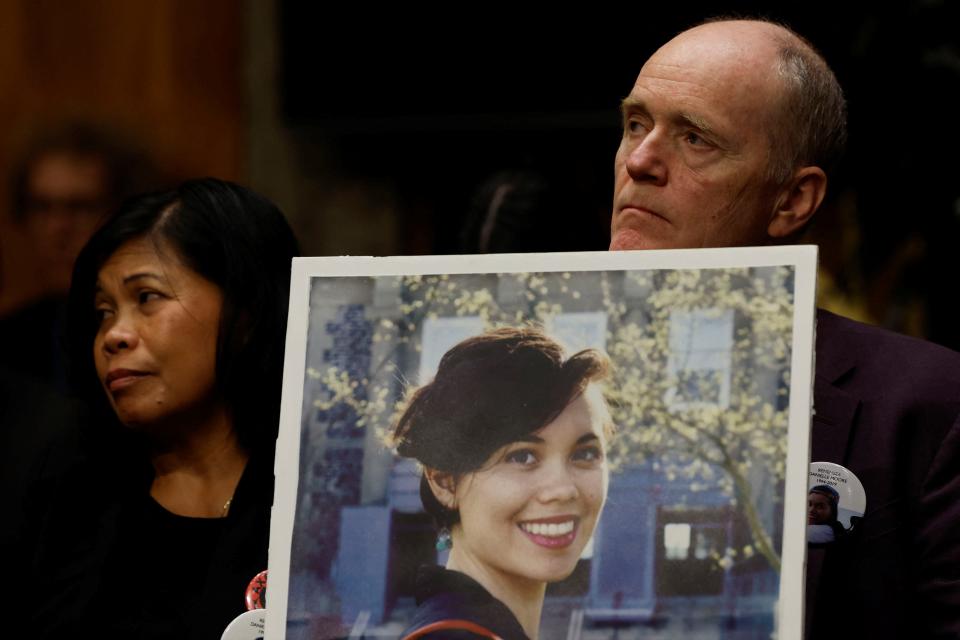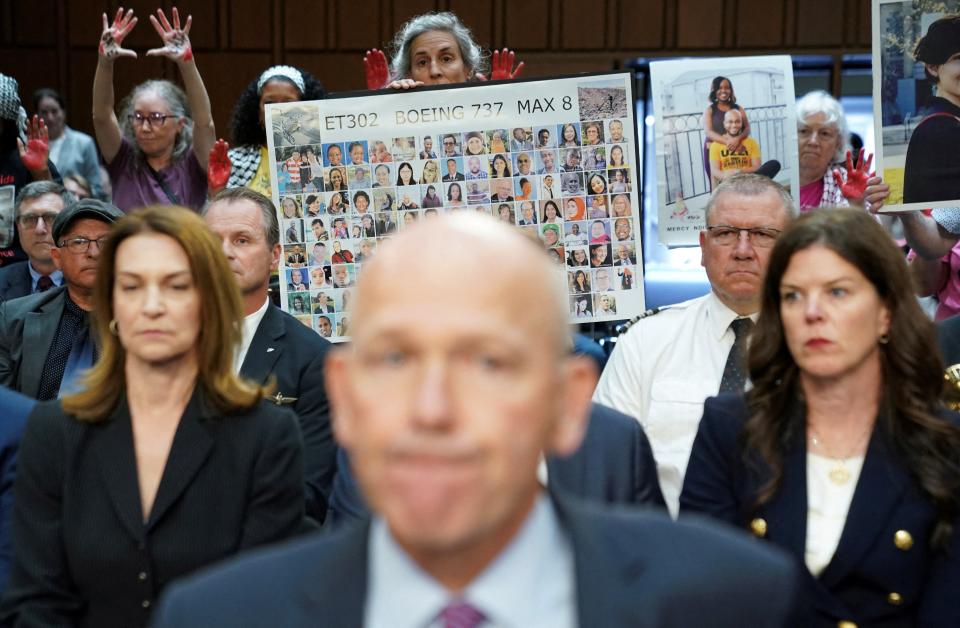DOJ to offer Boeing plea agreement for fatal crashes; relatives of victims slam 'sweetheart deal'
WASHINGTON – The Justice Department was poised Sunday to offer Boeing a plea agreement to resolve a criminal charge over two fatal 737 MAX crashes that killed 346 people overseas, but relatives of the victims slammed the proposal − and are urging a federal judge to reject it as “a sweetheart deal.”
The department briefed relatives of the victims about the proposed settlement earlier on Sunday. The department was expected to give Boeing the end of the week to respond to the offer, according to Reuters. The Justice Department and Boeing each declined to comment.
The proposal comes at a time when Boeing, the world’s largest commercial plane manufacturer, is under fire for lax safety standards, including at a critical hearing before Congress. The National Transportation Safety Board scolded the company for briefing reporters about investigative information. Besides the fatal crashes of Lion Air and Ethiopian Airlines in 2018 and 2019, a door plug blew out of an Alaska Airlines plane in flight in January.

If Boeing agrees to the plea offer, U.S. District Judge Reed O’Connor in Texas will have to decide whether to accept the plea agreement in the public interest.
Relatives of the victims plan to fly in from around the world to attend the judge’s next hearing in the case, according to Paul Cassell, a lawyer representing families of victims in the criminal case.
"The Justice Department is preparing to offer to Boeing another sweetheart plea deal,” said Cassell, a law professor at the University of Utah. “The families will strenuously object to this plea deal.”
Robert Clifford, a lawyer representing the families in pending civil litigation in federal court in Chicago, said the relatives would ask O’Connor to reject the plea deal if Boeing accepts it.
"I can tell you that the families are very unhappy and angered with DOJ’s decisions and proposal,” Clifford said.
Javier de Luis, whose sister died in the Ethiopian Airlines crash of a 737 MAX 8, criticized the plea proposal.
“The issue is that the penalties being proposed by the DOJ are totally inadequate both from the perspective of accountability for the crimes committed, and from the perspective of acting in the public interest by ensuring a change in Boeing’s behavior,” said de Luis, who served on the FAA’s expert review panel on Boeing’s safety culture.

The plea agreement revealed to relatives of victims would require Boeing to plead guilty to conspiring to defraud the Federal Aviation Administration in connection with the fatal crashes, according to Reuters. The settlement included a $487.2 million financial penalty, only half of which Boeing would be required to pay because prosecutors are giving the company credit for a previous settlement to the plane crashes, according to Reuters.
The plea deal would also require Boeing’s board to meet with relatives of victims and impose an independent monitor to audit the company’s safety practices for three years.
Boeing previously paid $2.5 billion as part of a deal with prosecutors that granted the company immunity from criminal prosecution over the 737 MAX’s flawed design.
Boeing had to abide by the terms of the deal through a three-year period that ended Jan. 7. Prosecutors were poised to dismiss the conspiracy charge.
Two days before the deferred prosecution agreement expired, a door plug blew out of an Alaska Airlines’ Boeing 737 MAX 9.
In May the Justice Department found Boeing breached the deferred prosecution agreement, which opened it to the potential charges behind the plea agreement revealed Sunday.
This article originally appeared on USA TODAY: Boeing to receive DOJ plea deal for fatal crashes; victims oppose move


